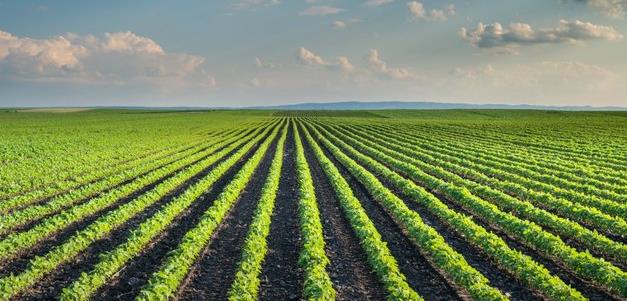Dicamba deadline passes
by May 28, 2019 4:18 pm 752 views

The controversial herbicide dicamba cannot be used for the rest of the growing season in Arkansas. The Arkansas Plant Board designated May 25 as the last day that growers could apply the herbicide to crops in the state, per a ruling earlier this year.
If a grower decides to use dicamba after that date, a fine of up to $25,000 per violation might be levied.
The herbicide is primarily used to control Palmer amaranth, commonly known as pigweed, in soybeans and cotton that have been genetically modified to tolerate the chemicals. Although various formulations of dicamba have been in use for many years, its use attracted national attention when the APB received more than 1,000 complaints of herbicide damage in soybeans and other crops in 2017, many of which were believed to be caused by neighboring growers’ application of off-label dicamba formulations to their own dicamba-tolerant crops or from drift from dicamba use fields to others.
Most of the damage complaints came from Northeast Arkansas especially in Mississippi County, which is dominated by soybean and cotton fields.
After the Plant Board initially declared an emergency ban on all use of dicamba in June, 2017, the board later amended its ruling to institute an April 15 in-crop cutoff date. In February of this year, the board voted to extend that date well into May, along with introducing several other conditions.
A one-mile buffer is required around university research stations and certified organic crops and specialty crop producers with 1,000 plants or $25,000 in annual sales. A ban on tank-mixing dicamba and glyphosate; half-mile buffer around non-dicamba-tolerant soybeans, and training and certification requirements for dicamba applicators.
Dicamba has been banned in several states. Dicamba has been used as a herbicide for more than 50 years to manage 200 broad leaf weeds. It is a Weed Science Society of America Group 4 synthetic auxin — a plant hormone that causes plants to exhibit uncontrolled growth, according to the University of Arkansas. It is more volatile in warmer climates.
Scientists theorized dicamba was drifting into adjacent crop fields, gardens and other places. Misapplications, weather conditions, or some other unknown factors may have caused the alleged drift. Tests proved the new formulations were less volatile than older ones, but there was still volatility, and it could last up to 36 hours after it was sprayed. Dicamba can attach to dust particles, meaning it can travel much further from target sites than previously thought.
Arkansas producers were expecting to grow more than 3 million acres of soybeans and about 580,000 acres of cotton in 2019, according to the National Agricultural Statistics Service (NASS).
